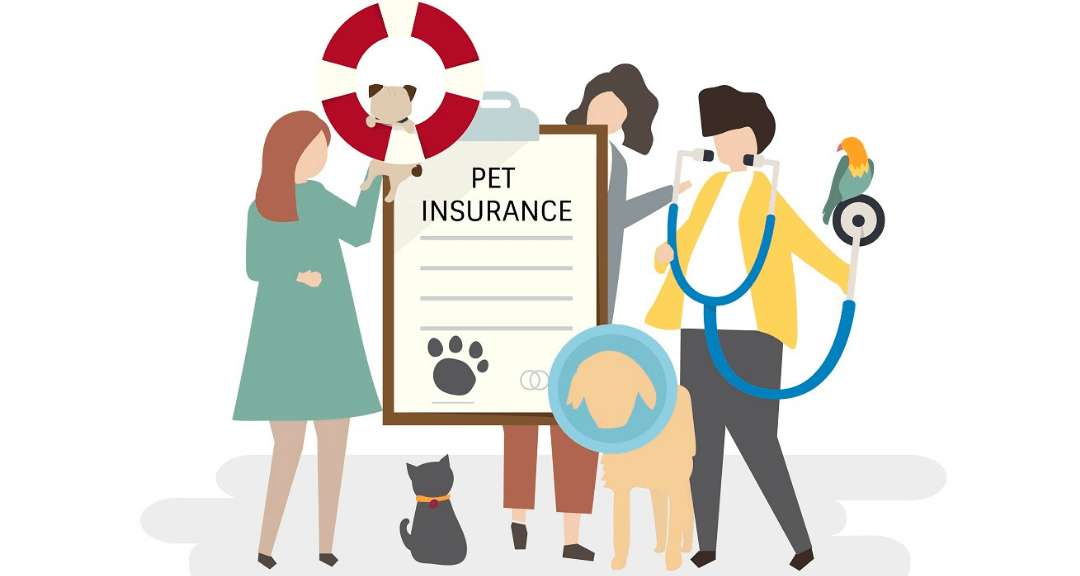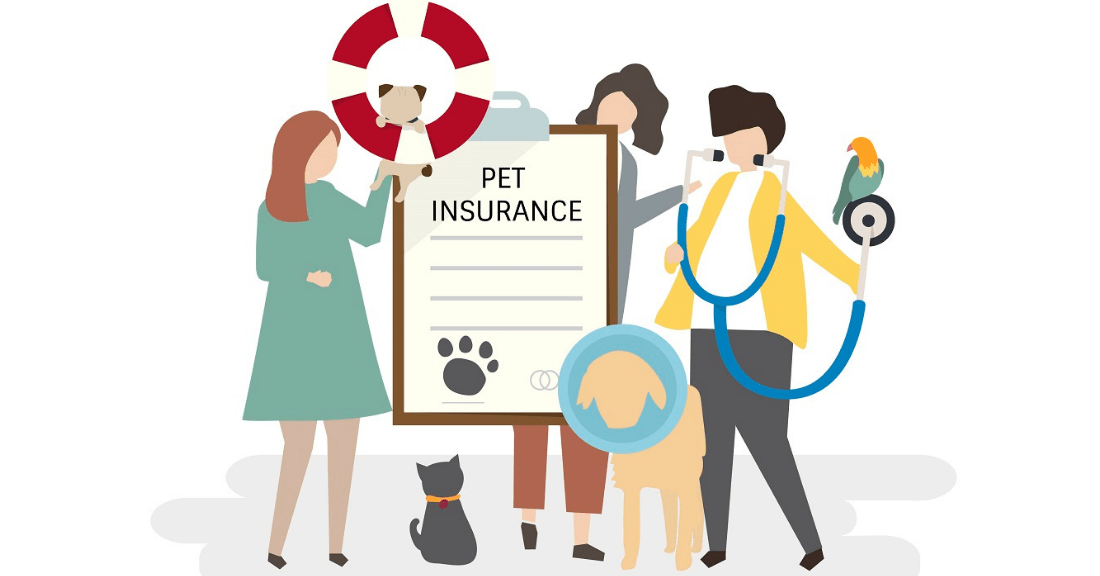Health insurance proves invaluable during challenging situations such as medical emergencies. It not only provides financial relief by covering the...

A handy guide to start a term insurance plan
A handy guide to start a term insurance plan

Term insurance plans work as recourse to face different uncertainties. If you are planning to take term insurance plan, make sure to gather information about the cover amount, policy term, premium etc. The following article gives you an in -depth coverage of all things essential to start a term insurance plan.
Subas Tiwari
Term insurance brings additional benefits such as posthumous family financial protection, tax savings, critical illness, accidental death etc. If we talk about the types of term plans, then there are pure term plans, return on premium term plans and term plans with income benefits. But first, let us understand what is a term insurance policy.
What is term insurance?
One of the most misunderstood financial products in India is “Term Insurance”. In fact, “Insurance” in itself is not understood or appreciated enough. Most people consider insurance as just another form of savings or tax savings instrument, which can earn them safe, stable returns over the long run. Some products in the insurance space do provide this regular saving facility, but that is not the purest form of insurance.
The true and simplest meaning of insurance is – protection against risk. Now this risk may be to life or property or many other things. But in this article, let’s focus on life insurance, and specifically term insurance. It’s a policy where you pay premiums in return for a benefit to your family in case you die, and you get nothing if you survive the insurance period.
Tell this to people and most will ask, “Why should I pay annually for a product if I am not going to get anything back?” Very few understand that you pay premiums because there is a guarantee that if something happens to you, your family will be paid the pre-decided amount. Therefore, you have the peace of mind that even if you are not there; your loved ones will not have to bear a financial loss as well.
Just consider this – in the unfortunate event of one’s death, the immediate family will receive sufficient amount to maintain their standard of living. This payout can also fund their child’s education, help pay off dues and even provide capital in case the spouse wants to start a business to support the family. This is the reason term insurance is also known as a “pure risk” plan – simply because it mitigates the risk of you not being there to provide financial support to your family.
Term insurance is the oldest form of insurance and is the least expensive plan to cover the risk of death. Term plan is a no-return plan just like your medi-claim or car insurance cover. If claim is made within the insured period, the nominee will get the full sum assured as otherwise there is no maturity value or cash value for this plan. It provides coverage for a specific period or term say 10 to 30 years. Term insurance plan is a must for a person who has dependents or a family of which he is the sole bread-earner. If you have family members dependent on your income, you need term insurance.
It’s a hedge for the protection
One should not make the mistake of taking term insurance premium as an expense but treat this as a hedge for the protection and security of your loved ones. You need to compare the premiums before selecting the right company and also have to go through the exclusions in the plan. This will help you in selecting the right term plan. Looking at all the facts available, term insurance is the obvious choice for insurance for life.
Term insurance is the simplest or the purest form of life insurance. In this case, there is a provision that in the event of the demise of the insured person, the family of the deceased is paid a pre-determined amount as part of the coverage.
For example, a person bought a term insurance plan for a sum of Rs 30 lacs. The tenure or the term of the policy is 20 years. So, if the insured person passes away in the duration when the policy is valid, the family (the nominee or the legal heirs as the case may be) will be paid a sum of Rs 30 lacs.
Another important aspect of term life insurance is to ascertain the safety net which the family of the insured will require in the event of the demise of the insured. The calculation is done by keeping a view on the existing standard of living of the family and the funds that would be required in order to continue to live with the same standard of living. Also, to be considered are the various important events like marriages, higher education etc; and the debt that the deceased must have left behind to the legal heir(s).
After the calculation of the aforementioned future expenses, the person can come to a definite number or the coverage which he/she may require in order to provide for the family or dependents so they can continue their existing standard of living.
But one thing is very clear. The earlier the insured takes this policy to benefit his family after the unexpected death, the lesser is the cost of premium he/she has to pay to keep the policy alive.
One should look at the best term insurance plan in India depending on age, income and life insurance need. The online premiums are cheaper than off-line term plans and are quite easy to avail also. In the recent past, online term plans have gained immense popularity due to their easy access.
Some of the insurance companies are offering discounts on online purchase of term plan policies, because it saves the companies a lot of labour and man-hours trying to sift through hordes of paper/documents, which can be easily viewed online and preserve it for future use without much difficulty.
We have brought out the salient features and workings of term plan insurance online in this article (SEE BOX) for the information of our readers.
Advantages/benefits of term plan insurance
- Term insurance is the cheapest form of insurance.
- It’s simple to understand.
- Select the length of the term for which you would like coverage, say up to 35 years. So, payments are fixed and do not increase during your term period.
- During the early years of a term policy, the premium will usually be significantly lower than for cash value life insurance.
- In case of an untimely death, dependents will receive the benefit amount specified in the insurance agreement directly on filing the claim with supporting documents.
- You can customise term life insurance with the addition of riders, such as Child Benefit or Accidental death.
- Another popular feature of term insurance is the return of the premium. They may give the benefit of returning 100 per cent of whatever you have paid.
Disadvantages/limitations
- There is a downside in that, if the insured person happens to outlive the tenure of the policy, all the amount paid in the form of premiums will be forfeited by the insurance company without any benefits to the insured or to his/her family. Essentially all the premium will go down the drain, except for tax benefits he/she would have availed on the amount paid as term insurance premium.
- There is one major hurdle that prevents people from purchasing a term insurance plan; it tends to create a mental block as it deals with the death of the person taking a policy. But it is morbid, as the rationale behind buying car insurance is exactly the same as buying a term insurance plan.
If a person meets with an unfortunate car accident while driving, he/she has to pay damage charges to the other party or the insurance provider will compensate him/her. On the other hand, if the person is a relatively safe driver and avoids any accident, the premium acts more like a hedge (cover) against any event which might/might not occur. - Consumers resort to consulting their agent as they either do not have the time to go through the brochure of this product or they believe that the agent is in the trade and hence should know more of the product- so it is easy to ask him questions and get answers from him without counter-verifying with the insurer. Unless one is aware of the features of the insurance plan himself/herself, do not expect the agent to explain the plan in detail (some of the agents do not give proper advice to their clients and run behind commissions).
- Term insurance provides coverage only for a limited period of time.
- Premium rates are guaranteed only until the end of the term. Depending on the policy, premiums may be level for a period of 1, 5, 10, 15, 20, 25, or 30 years and then cease without any renewal option, or offer a fresh cover at the end of the plan period at a higher premium rate.
- Deteriorating health can trap you in a policy with rapidly increasing premiums.
- No insurance company offers term plan insurance over 75 years of age, which means it is not very beneficial to the insured after attaining 75 years.
Tips to get on a term insurance plan
First decide the cover amount
Choosing the cover amount is the most important thing to do before buying a term insurance policy. It depends on the individual, how much minimum cover he needs. Going by the thumb rule, salaried people should take a cover of 10 times of their annual income and at the same time keep increasing it with increasing income. You can also calculate the cover amount online. There are many online tools available in which you can calculate the cover amount as per your income and profession.
Deciding policy term is very important
Selecting the term of the policy is the second most important task in the selection of a term plan. If you are taking the policy at a young age, then choose the longest-term policy. This will also give you an opportunity to buy the policy at a lower premium.
Online or offline?
You can buy the term policy through an agent or online. You may also have to pay a lower premium if you do it directly through the company’s website or aggregator website. At the same time, if you take it from the agent, you will have to pay a higher premium.
Choosing the company
Choosing a good company is very important before buying a term insurance policy. Before taking a policy from any company, check its claim record ratio. Along with this, also know the financial position of that company and keep in mind the company’s service, method of payment, etc.
Choice of rider
Even after a term plan, there is also a possibility that the policyholder may become a victim of disability due to an accident or he may lose his hearing. In such a case, a rider should also be taken for financial security. However, for this you have to pay an additional premium.
Some more important aspects of term insurance
The public, consisting of the common man, the office-goer, the professional are mostly aware of life insurance products in the insurance sector. But many don’t know or aware, is the topic of discussion in this article. May be, the professionals and the babus in the corridors of power, will have the benefit of knowing this product, which is term plan insurance.
Most of us know that there are 24 life insurance companies operating in India out of which Life Insurance Corporation of India corners almost 70 per cent of the total life insurance business. There is no best investment product anywhere; the answer is a relatively better product based on offering benefits with reasonable costs.
Types of term insurance plans
There are basically three types of insurance plans available in the market. They are:
(1) Traditional or conventional plans
Traditional plans are mostly saving products and give guarantee of sum assured and also give bonus every year depending on the profitability of the company. The investment options are with the insurer and they take a call where to invest on the plans available in the market.
(2) Unit linked insurance plans
ULIP plans are market-related and the risk of investment is borne by the policyholders. Policyholders have the right to choose the investment option available in the plan i.e. from 100 per cent in debt to 100 per cent in equity. ULIP products are more complex than traditional plans.
(3) Term insurance plans
First, think about why you want to buy a term insurance plan? Of course, like everyone else, you also believe that nothing will happen to you. We, too, would wish the same for you. But the harsh truth is that this life is highly uncertain. There is always an element of concern or risk which leads you to ask the “What if?” question. You must buy term insurance to answer this very question as the entire financial trauma arising out of that question will remain unanswered.
Have you ever realized the value of a term insurance plan? Don’t just take a term plan just because everyone is going for that or that you might be considered as a prudent wise man! But do a cross- check whether your family can be benefited easily if required so in future. So, feel the necessity and then proceed further to choose the best product.
What is claim settlement ratio?
This gives us an idea about the claim solving ability of the insurance company. If claims are intimated and the insurance company settles those, claim settlement ratio would be good. In simple words, claim settlement ratio is the number of claims settled by the insurance company out of every 100 claims it has received. Higher claim settlement ratio implies that majority of claims are getting settled. Higher the claim settlement ratio for the company, the better rated the company is in the eyes of the public.
Claim settlement ratio
One should go with the company who has a better claim settlement ratio and a good reputation. So that after the death of the insured, his family does not have to face much trouble to get the money. In simple words, with better claim settlement ratio, you can understand the ability of the company to pay the amount to insurer’s family. How many policies were settled successfully and if company denied paying the amount showing some reason, then you will ask in how many policies and claim amount was done? So, it’s better to stay with the company who generally or mostly paid out all insurance claims.
Care to be taken while taking a term plan policy
Generally, 99 per cent of insurance business are canvassed by agents only- mostly by our uncle, aunty and relatives, etc. Don’t believe any one while filling the form. Most of the time people just sign the policy document and then leaves the rest of the details to be filled in by the insurance agent. You are the best person to fill up your personal details. Any wrong information which you might think as a negligible factor can be pointed out later by the insurer to your family to find a reason for rejection of claim in favour of the nominee/legal heirs.
How online term insurance plan works?
The latest buzz in term plan industry is the online term plans. You can simply provide the data online and subscribe to your term plan instantly with a lower premium. The insurance companies extend cheaper premiums on on-line term policies as it saves them a lot of paperwork and physical labour of verifying the documents. But the problem here is, most of the term plans do not involve a proper procedure to check individual’s health condition and other factors. Due to that, it is very risky to subscribe to a term plan although the premium is lowest. Your family might be in trouble in future. So, it’s better to pay the premiums and subscribe the same term plan through agent/sales officers by following every procedure clearly. Companies can have a better and clear record about your insurance to track in future.
One can go online and calculate the premium, then can start the process of buying the policy and submit details such as name, age, tenure, sum assured and medical information which can affect the premium. After all this, one gets a premium quote and then it is paid online.
After the premium is paid, there are few things which are yet to be completed. The proposer will get a mail from company or get a call from company that some representative of the insurance company will come to the residence and collect the important documents; the documents are also required for Know Your Customer (KYC). Based on the age and given information, the insurer can decide if one will have to appear for medical test or not. If there is anything wrong in medical examination which can affect the premium (and consequently can increase company’s risk of insuring), then they can increase the premium (loading) or choose not to offer the policy. One can then decide to continue with them by paying the additional premium or cancel the policy.
Tips to Increase the Chances of Avoiding Health Insurance Claims Rejection
Personal Accident Insurance
During these times when people have to adhere to strict timelines, work longer hours, attend tours and meetings, the working class is always on the...
Portability of Health Insurance
If you find yourself dissatisfied with the services provided by your current mobile phone service provider and wish to switch to a different...







